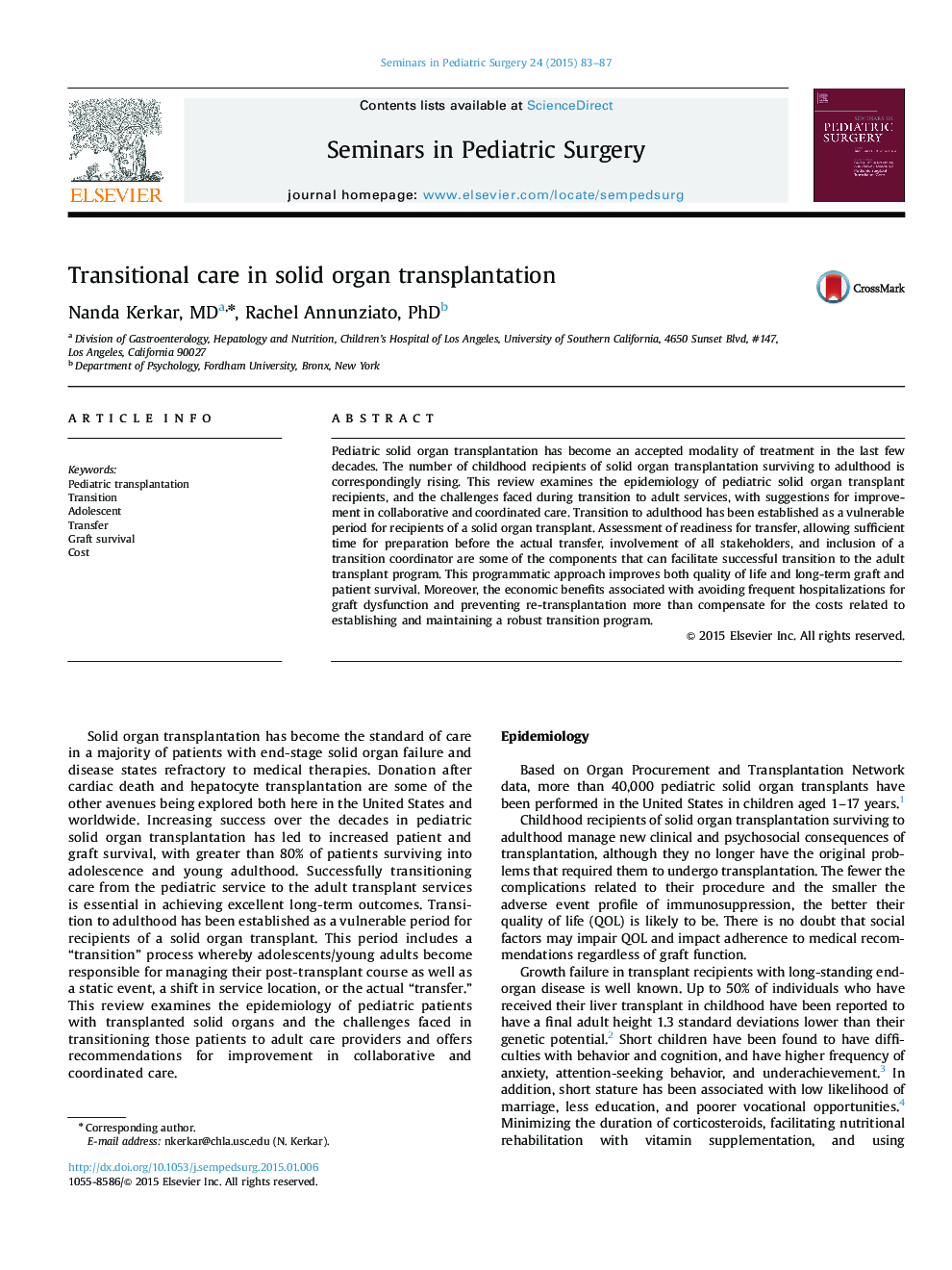| Article ID | Journal | Published Year | Pages | File Type |
|---|---|---|---|---|
| 4176377 | Seminars in Pediatric Surgery | 2015 | 5 Pages |
Pediatric solid organ transplantation has become an accepted modality of treatment in the last few decades. The number of childhood recipients of solid organ transplantation surviving to adulthood is correspondingly rising. This review examines the epidemiology of pediatric solid organ transplant recipients, and the challenges faced during transition to adult services, with suggestions for improvement in collaborative and coordinated care. Transition to adulthood has been established as a vulnerable period for recipients of a solid organ transplant. Assessment of readiness for transfer, allowing sufficient time for preparation before the actual transfer, involvement of all stakeholders, and inclusion of a transition coordinator are some of the components that can facilitate successful transition to the adult transplant program. This programmatic approach improves both quality of life and long-term graft and patient survival. Moreover, the economic benefits associated with avoiding frequent hospitalizations for graft dysfunction and preventing re-transplantation more than compensate for the costs related to establishing and maintaining a robust transition program.
